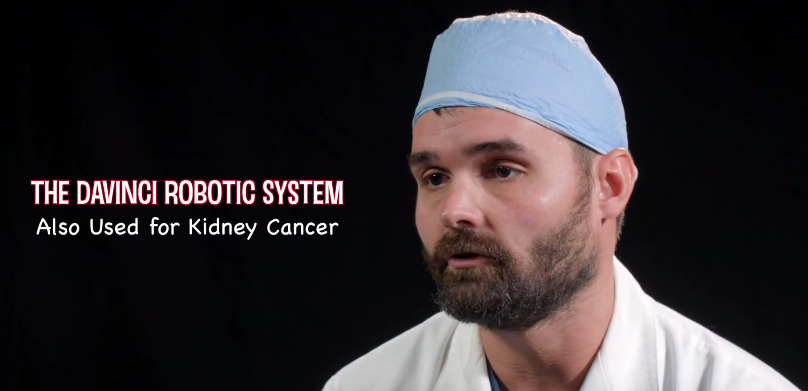KEY TAKEAWAYS:
- Dr. Evan Fynes, a urologist in Port Orange, FL, uses the DaVinci Robotic System for kidney cancer treatment, performing both total and partial nephrectomies.
- The DaVinci Robotic System provides enhanced visualization and precision during surgery, allowing for more accurate tumor removal and preservation of healthy kidney tissue.
- Robotic-assisted kidney cancer surgery results in reduced pain and faster recovery times for patients compared to traditional open procedures.
The DaVinci Robotic System has revolutionized various fields of surgery, including urology. Dr. Evan Fynes, a urologist in Port Orange, FL, specializes in using this advanced technology for kidney cancer treatment. In this article, we will discuss how Dr. Fynes employs the DaVinci Robotic System for kidney cancer procedures, such as nephrectomies, and the benefits it offers patients.
Robotic Surgery for Kidney Cancer
In the past, kidney cancer surgeries required large incisions and lengthy hospital stays. However, with the introduction of the DaVinci Robotic System, patients can now experience quicker recovery times and reduced pain. Dr. Fynes uses the robotic system to perform both total and partial nephrectomies. Total nephrectomies involve the removal of the entire kidney, while partial nephrectomies allow for the removal of only the tumor, preserving the healthy kidney tissue.
Enhanced Visualization and Precision
One of the key benefits of the DaVinci Robotic System is the improved visualization it provides during surgery. The system magnifies the surgical field, allowing Dr. Fynes to perform precise dissections and remove tumors with greater accuracy. This enhanced visualization is particularly beneficial for partial nephrectomies, where it is crucial to separate the tumor from the healthy kidney tissue without causing damage.
Reduced Pain and Faster Recovery
Robotic-assisted surgery with the DaVinci Robotic System is significantly less painful for patients compared to traditional open procedures. The smaller incisions used in robotic surgery result in less blood loss, reduced pain, and faster healing. As a result, patients can return home and resume their normal activities much sooner. According to Dr. Fynes, patients who undergo robotic-assisted kidney cancer surgery are typically discharged from the hospital in just two or three days, compared to five to seven days for traditional open procedures.
Advanced Urology Institute
Dr. Evan Fynes is a part of the Advanced Urology Institute, the largest urology practice in Florida. This institute is committed to providing the highest quality of care for their patients through the use of cutting-edge technology, such as the DaVinci Robotic System. By choosing the Advanced Urology Institute for your kidney cancer treatment, you can trust that you are receiving the best possible care from highly skilled and experienced professionals.
TRANSCRIPTION:
Back in olden days, so to speak, we used to make a bigger incision, and the patient would
be in the hospital five to seven days, and now with the robot, a lot of people are home
in two or three days after removing a kidney.
Hello, Dr. Evan Fynes, I’m a urologist with Advanced UrologyInstitute.
So the robot is also being used extensively for kidney type, kidney surgery, whether it’s
removing the whole kidney for somebody with a presumed kidney cancer, or a lot of times
these days we’re doing something called partial nephrectomies with the robot, where you’re
able just to remove the tumor and leave the kidney behind.
In regards to robotic surgery with the kidney, it just magnifies everything.
You’re able to get fine movements to dissect the tumor off, remove the tumor, and close
the kidney back up.
It’s also a lot less painful for patients.
REFERENCES:
- “Da Vinci Surgery | Kidney | Nephrectomy – Intuitive Surgical.” https://www.intuitive.com/en-us/patients/procedures/urology/kidney-surgery.
- “Kidney Cancer: Types of Treatment.” https://www.cancer.net/cancer-types/kidney-cancer/types-treatment.
- “Robotic Surgery Vs. Traditional Surgery – Elvira Klause, MD, FACS.” https://www.drklause.com/blog/robotic-surgery-vs-traditional-surgery.


